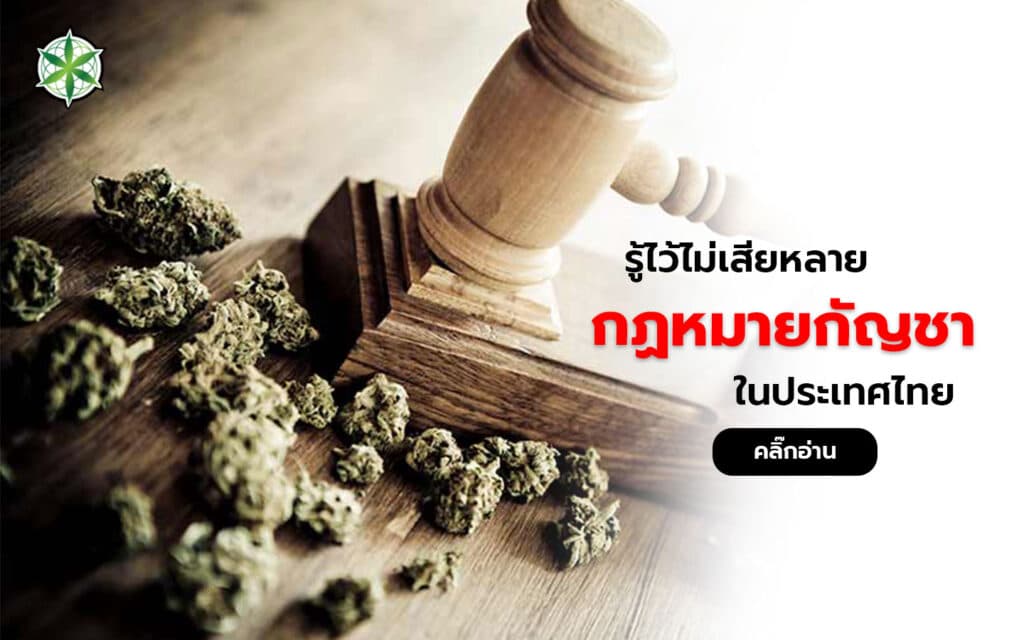
Although cannabis has long been used in Thailand, it is contained in the Narcotic Drugs Act B.E. 2522 (1979), which prohibits the possession, sale and consumption of marijuana unless it is permitted for research or medical use only. Violations are punishable by imprisonment and fines based on the amount of drugs.
However, in 2021, there was a movement to remove marijuana from the drug list. Starting from the committee considering the legal proposal to the cabinet, it resolved to remove cannabis from the Narcotic Drugs Act and to allow the production, sale and use of cannabis only in modern and folk medicine.
Later, on June 9, 2022, the Cabinet issued a notification to remove kratom cannabis from the list of Class 5 drugs, allowing people to grow no more than 6 cannabis plants per household under regulations from the Ministry of Public Health.
However, the control of production, distribution, import. Cannabis exports are still subject to other laws such as the Narcotics Penalty Act, the Hazardous Substances Act, and the Food Act. The Ministry of Public Health has guidelines to issue licenses for “medical marijuana conversions” for industrial production sites. In addition, there is a new ministerial regulation to control the spread, requiring manufacturers to plant in netted fenced areas. Sold only at authorized distribution locations.
Recreational use of marijuana is still illegal. There are imprisonment penalties and fines for violations, which the government says will impose strict punitive measures if cannabis is misused.
While the removal of marijuana from the Narcotics Act may be seen as a breakthrough in easing the law, there is still debate from many sides about its impact on society and the lack of clarity on the law. This includes the country’s readiness in terms of both regulation and law enforcement.
Key Points in Cannabis Laws in Thailand
After Thailand relaxed its cannabis laws in 2022 by removing kratom cannabis from the drug list. This has caused skepticism from many sectors, including the issue of social impact. Clarity of laws and readiness of relevant agencies to enforce regulations
One major obstacle is the lack of clear regulatory standards for cannabis products, especially in terms of the potency of the active substances in both THC and CBD .
In addition, the problem of lack of clear requirements and penalties for violations. Gaps can still cause confusion, such as determining quantities deemed possessed for illegal distribution. Imposition of penalties for unauthorized possession or distribution, etc.
Some suggest that the state should play a role in regulating the production process. This is to prevent competition on the black market and reduce negative impacts, as is the case with alcohol, which will further enhance regulation.
Another controversial issue is the possibility of relaxing recreational marijuana. Many countries around the world are also trending in this direction, which may help reduce the problem of illegal marijuana trade. However, the government maintains that there will be no relaxation in recreational marijuana use.
Enforcement laws govern the sale of marijuana, including the wholesale trade of marijuana.
As for the laws regarding the wholesale trade of cannabis in Thailand. Even though marijuana has been removed from the drug list, there are other laws that regulate it as follows:
Narcotic Drugs Act B.E. 2522 (1979)
It still applies to production. Import, export, or possession for sale is subject to permission from the Food and Drug Administration, except for marijuana grown under Article 26/5.
Hazardous Substances Act B.E. 2535 (1992)
Import, export, or possession control for the sale of cannabis and kratom requires a license from the Ministry of Health. Penalties for violations include imprisonment for up to 1 year or a fine of up to 20,000 baht, or both.
Announcement of the Ministry of Public Health on Cannabis B.E. 2565 (2022)
Set guidelines and (d) the production, distribution, or possession of cannabis; Operators who wish to wholesale cannabis must obtain a medical marijuana cultivation license and a license to possess or import and export cannabis.
Tobacco Products Control Act B.E. 2560 (2017)
Control the production, importation, distribution, transmission, or possession for the sale of cannabis products. Permission must be sought and the prescribed regulations must be followed.
Food Act B.E. 2522 (1979)
Control the production, import, export, and distribution of cannabis-containing foods. Permission from the Food and Drug Administration is required.
Content Summary: In the end Thailand’s cannabis law reform still faces many challenges. Both in terms of creating appropriate and comprehensive regulations. This includes educating the public about the effects and dangers so that the relaxation of cannabis laws can be carried out effectively and in the best interests of the people.

